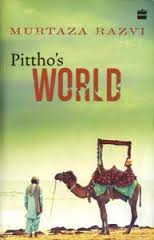Author Tehmina Durrani
ISBN 978-0-552-14239-7
Publishers Transworld Publishers (Corgi books)
The autobiography of Tehmina Durrani the Pakistani activist.
The book chronicles her journey from a docile protected Pakistan girl, to being the whistle-blower of the elite Pakistani society. The price she paid for it, she had to sign away all financial support, lost the custody of her children, alienated by friends and disowned by parents.
Tehmina Durrani, born to an elite Lahore family washes dirty linen in public sharing her life from being a sheltered daughter, marrying into a respectable family, having children and leading a leisurely life. Her personal demon of insecurity and the middle child syndrome shows up evidently through the book.
The book allows the reader a voyeuristic view of the domestic structure and feudal form of Pakistan. It is interesting to see the vast difference in the social environment and etiquette in the beginning of the book and its evolution towards the end of the book.
Intrigue within the family, illicit fairs, pedophilia, sibling rivalry, a conflict of tradition and the need to rebel all screams through the book on the domestic front.
She lays bare her nightmarish second marriage to Mustaf Khar the eminent Pakistani Politician without allowing him vindication. He is portrayed as violently possessive and pathologically jealous. Mustaf Khar appears to isolate her from the world outside for almost fourteen years.
The political activity at Pakistan plays an interesting backdrop. The highly westernized Pakistan elite and their dual lives is very evident
The book is definitely Tehamina’s story, with Mr.Mustafa Khar playing the Villain. When first published it shook the Pakistani society to its foundation. Here is a woman who apparently has succeeded in reconciling her faith in Islam with her ardent belief in woman’s rights.

